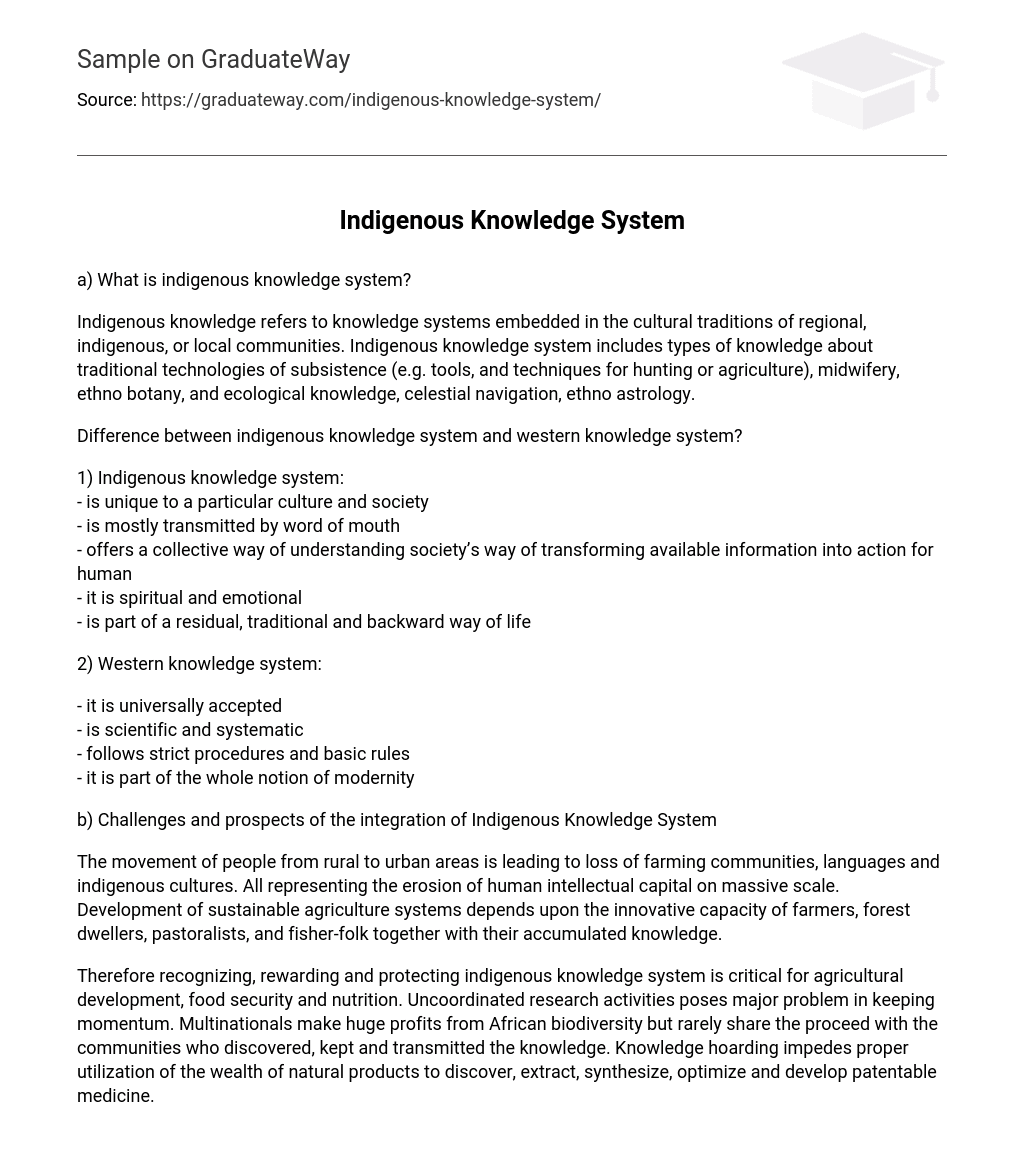a) What is indigenous knowledge system?
Indigenous knowledge refers to knowledge systems embedded in the cultural traditions of regional, indigenous, or local communities. Indigenous knowledge system includes types of knowledge about traditional technologies of subsistence (e.g. tools, and techniques for hunting or agriculture), midwifery, ethno botany, and ecological knowledge, celestial navigation, ethno astrology.
Difference between indigenous knowledge system and western knowledge system?
1) Indigenous knowledge system:
– is unique to a particular culture and society
– is mostly transmitted by word of mouth
– offers a collective way of understanding society’s way of transforming available information into action for human
– it is spiritual and emotional
– is part of a residual, traditional and backward way of life
2) Western knowledge system:
– it is universally accepted
– is scientific and systematic
– follows strict procedures and basic rules
– it is part of the whole notion of modernity
b) Challenges and prospects of the integration of Indigenous Knowledge System
The movement of people from rural to urban areas is leading to loss of farming communities, languages and indigenous cultures. All representing the erosion of human intellectual capital on massive scale. Development of sustainable agriculture systems depends upon the innovative capacity of farmers, forest dwellers, pastoralists, and fisher-folk together with their accumulated knowledge.
Therefore recognizing, rewarding and protecting indigenous knowledge system is critical for agricultural development, food security and nutrition. Uncoordinated research activities poses major problem in keeping momentum. Multinationals make huge profits from African biodiversity but rarely share the proceed with the communities who discovered, kept and transmitted the knowledge. Knowledge hoarding impedes proper utilization of the wealth of natural products to discover, extract, synthesize, optimize and develop patentable medicine.





